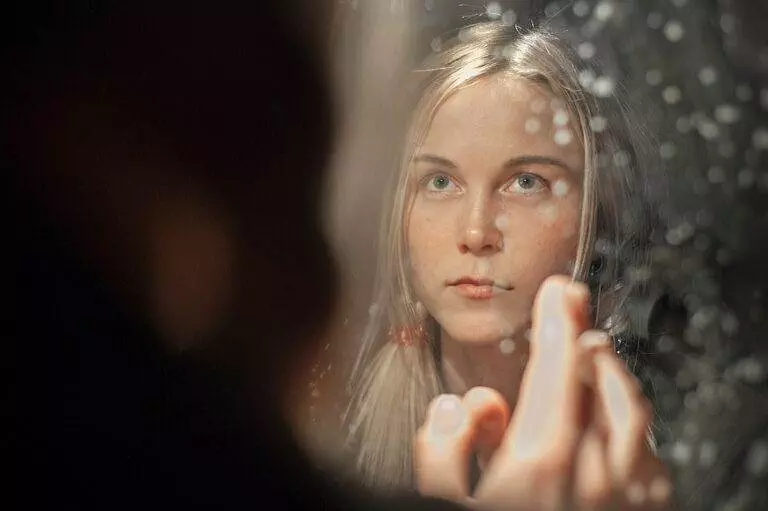Introduction
In her poem “The Looking Glass,” Kamala Das takes readers on an introspective journey through the complexities of self-discovery and the female experience. The poem explores themes of love, sexuality, and the societal pressures that shape a woman’s identity. Through vivid imagery and honest self-reflection, Das invites readers to confront the often uncomfortable truths about themselves and the world around them.
Table of Contents
The Mirror as a Symbol
The central symbol in “The Looking Glass” is the mirror, which serves as a metaphor for self-examination and the search for one’s true identity. Das writes:
Getting a man to love you is easy
Only be honest about your wants as Woman.
Stand nude before the glass with him
So that he sees himself the stronger one
And believes it so, and you so much more
Softer, younger, lovelier.
The act of standing nude before the mirror with a man represents the vulnerability and honesty required in a relationship. It also highlights the societal expectations placed on women to be “softer, younger, lovelier” to appeal to men’s desires.
Confronting Societal Norms
Throughout the poem, Das challenges the traditional gender roles and expectations imposed on women. She encourages women to be honest about their wants and needs, even if they don’t align with societal norms:
Admit your Admiration.
Notice the perfection
Of his limbs, his eyes reddening under
The shower, the shy walk across the bathroom floor,
Dropping towels, and the jerky way he Urinates.
All the fond details that make
Him male and your only man.
By focusing on the “fond details” that make a man unique, Das emphasizes the importance of seeing beyond surface-level appearances and appreciating the individual qualities of a partner.
Read this too: The Sonnet
The Power of Self-Love
Das also stresses the significance of self-love and acceptance in the face of societal pressures. She writes:
Gift him all,
Gift him what makes you woman, the scent of
Long hair, the musk of sweat between the breasts,
The warm shock of menstrual blood, and all your
Endless female hungers.
By embracing and celebrating the aspects of womanhood that are often considered taboo or shameful, Das encourages readers to find power in their own bodies and desires.
Literary Techniques in The Looking Glass
Das employs various literary techniques to convey her message effectively. Her use of free verse allows for a more conversational and intimate tone, making the poem feel like a personal confession. The vivid imagery, such as the “scent of long hair” and the “warm shock of menstrual blood,” adds a sensory dimension to the poem, making it more tangible and relatable to readers.
Conclusion
“The Looking Glass” is a powerful and thought-provoking exploration of self-discovery, love, and the female experience. Through her honest and unapologetic words, Kamala Das encourages readers to confront their own truths and embrace their individuality in the face of societal pressures. The poem serves as a reminder of the importance of self-love and the power of vulnerability in relationships.
Sources



5 Comments
Pingback: My Mother at Sixty-Six: A Journey Through Time and Separation (For 12th RBSE) - LitGram by MukeshRishit
Pingback: The Freaks by Kamala Das: Comprehensive Summary and Analysis - LitGram by MukeshRishit
Pingback: The Bangle Sellers: A Critical Analysis of Colonial Femininity and Cultural Resistance LitGram by MukeshRishit
Pingback: The Sunshine Cat by Kamala Das: A Feminist Masterpiece of Pain and Resilience - LitGram by MukeshRishit
Pingback: Dance of the Eunuchs: Comprehensive Summary and Poem PDF Download